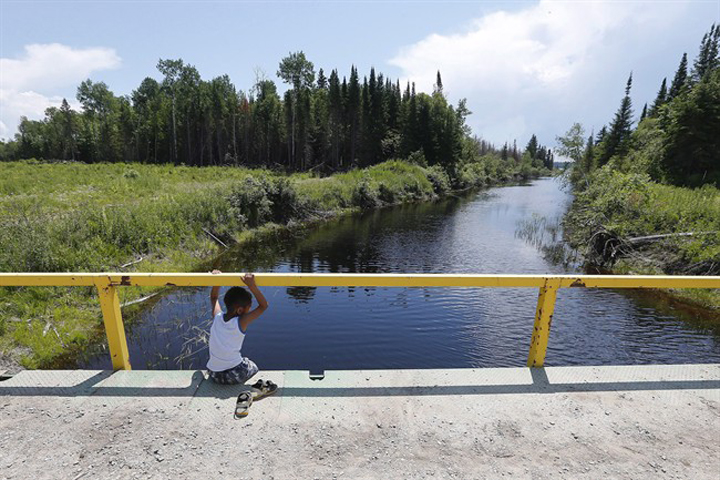WINNIPEG — The federal Conservatives say they have committed in principle to address a remote First Nation’s plight that has become an election campaign issue, but the community’s leadership isn’t convinced the Conservative promise is anything new.

Shoal Lake 40 First Nation, which straddles the Ontario-Manitoba boundary, has been under a boil-water advisory for 17 years and has no all-weather road. It was separated from the mainland a century ago when an aqueduct was built to send fresh water to Winnipeg.
Pressure has been building on the federal government to help fund what has been dubbed Freedom Road by residents and which would cost an estimated $30 million.
The City of Winnipeg and the Manitoba government committed earlier this year to each fund one-third, with the remainder to come from Ottawa. Liberal Leader Justin Trudeau promised last month to pay the federal share if his party is elected.
In June, Natural Resources Minister Greg Rickford, the MP for the area, would not promise to pay for the road but reiterated a $1-million commitment for a design study. Some Shoal Lake residents wept openly as Rickford visited the community but refused to commit to construction.
On Monday, the Conservatives issued a short statement that said the study is, in essence, a commitment in principle to building the road.
“The Harper government supports the Freedom Road in principle which is why it has funded the design,” read a one-line party statement to which was attached Rickford’s June news release.
- Alberta to overhaul municipal rules to include sweeping new powers, municipal political parties
- Norad looking to NATO to help detect threats over the Arctic, chief says
- Grocery code: How Ottawa has tried to get Loblaw, Walmart on board
- Canada, U.S., U.K. lay additional sanctions on Iran over attack on Israel
Attempts to reach Rickford for comment were unsuccessful.
The statement came hours after a departing Conservative MP said the government should help build the road. Joy Smith, who is not running for re-election after 11 years representing a Winnipeg riding, said she felt strongly that an all-weather road would help the community gain access to education, health care and other services.
“If someone gets sick in the winter, there’s no way of getting them to a doctor,” she said.
Culyer Cotton, a policy analyst with Shoal Lake 40, said Monday the federal government has not put anything in writing. He also said the agreement to fund a design study falls far short of a commitment to build the road.
“The fear is, it is meaningless.”
Shoal Lake 40 was once a peninsula, but was cut off when crews carved a channel to divert boggy water away from the aqueduct intake for Winnipeg.
The First Nation’s 275 members have at times been cut off from the mainland. Their aging ferry was temporarily pulled from service earlier this year when it didn’t pass federal inspection. In winter, there is an ice road and almost every year someone falls through on the way to get groceries and other supplies from the mainland.
A running-water system was built in the 1990s, but did not meet standards and there was an outbreak of an illness caused by the cryptosporidium parasite in 1997. The band council believes a new water-treatment facility could be built at a reasonable cost if there were a road to truck in supplies.
The federal government has made recent road commitments in the region. It has promised $100 million to expand the Trans-Canada Highway north of Shoal Lake 40, where the route crosses the interprovincial boundary.



Comments